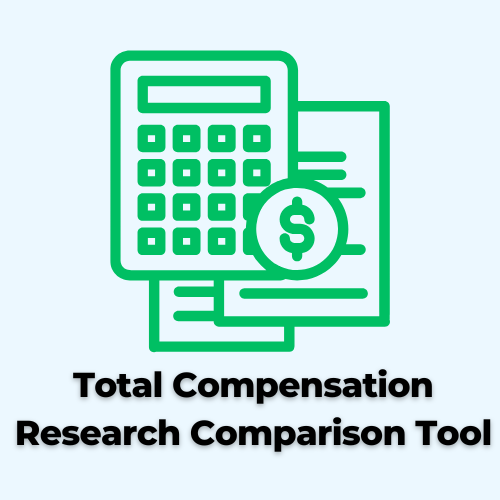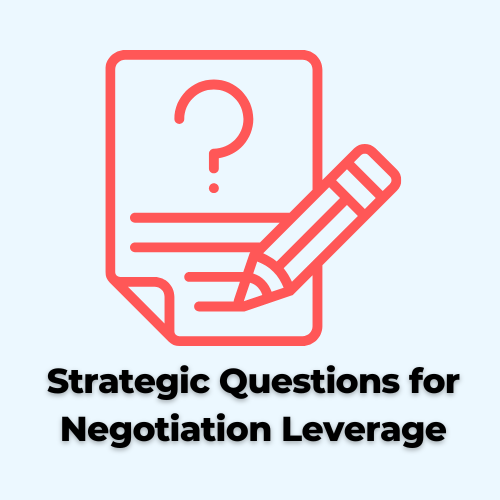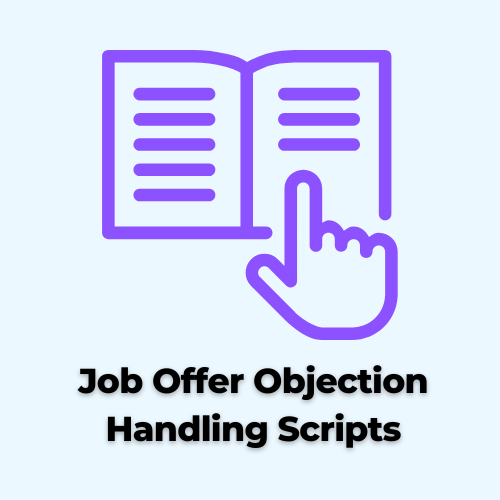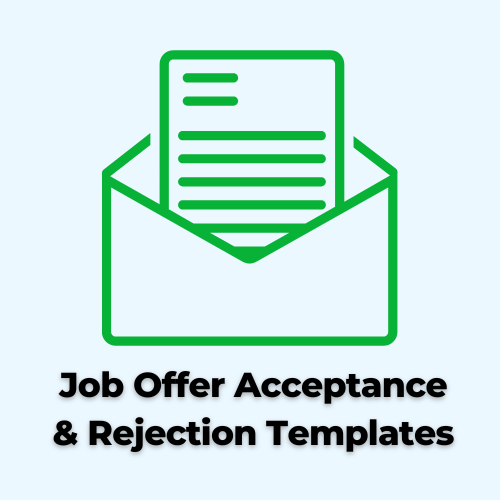IBM Salary Negotiation: How to Negotiate an IBM Job Offer
Landing a job at a well-known company like International Business Machines Corporation (IBM) can be challenging; if you’re lucky enough to receive an offer from IBM, it’s likely you’ll be tempted to accept that offer the moment it’s extended. Doing so, however, isn’t actually in your best interest—negotiating is.
Negotiating a job offer with IBM gives you the chance to secure a better compensation package (and one that aligns more with what you deserve). While the thought of negotiating might be a scary one if you’ve never done it before, there’s really nothing to be afraid of—IBM negotiates job offers all the time. How do we know? Because we’ve seen it happen with our very own clients. We’ve guided them through our negotiation strategies and watched them receive better offers for their IBM jobs.
IBM is one of the largest employers in the US and hires many software engineeers, data scientists, product managers, and business-based roles across the country. Even though IBM may not be known for the highest compensation in the industry, it is nonetheless a tested company that many will find stability in for a long career.
Despite misconceptions that an IBM salary negotiation is almost impossible, we are happy to report that the process is actually both possible and relatively simple—and we are going to show you how. In this article, you’ll find a detailed outline of our top IBM salary negotiation strategies. Following these insights will make it much easier for you to negotiate an IBM job offer confidently and successfully.
Want to Negotiate Your Offer? Get offer-specific guidance from an IBM Salary Negotiation Coach. We help career professionals negotiate competitive job offers.
Or leverage our Salary Negotiation Courses and Salary Negotiation Templates.
 Job Offer Negotiation Course
Job Offer Negotiation Course
- Get our job offer negotiation strategies, templates, scripts, and guidance.
- Access our step-by-step lessons, compensation research guides, and tools.
- Access Now
 Raise Negotiation Course
Raise Negotiation Course
- Get our raise negotiation strategies, templates, scripts, and guidance.
- Access our step-by-step lessons, compensation research guides, and tools.
- Access Now
Understanding the Compensation Components of an IBM Job Offer
Compared to similar companies, IBM offers slightly different benefits and compensation. If you want to negotiate these different IBM salary components effectively, you’ll have to understand how they each individually work first. Taking the time to explore these components in detail will also allow you to calculate your total compensation (your total annual take home pay) accurately.
When faced with a job offer, most people focus solely on the base salary and tend to gloss over the other elements of the offer. While the base salary of an IBM job offer is the main form of compensation, most offers will also include a yearly performance bonus, a sign-on bonus, and even equity in some higher-level roles. Here’s an example of what an IBM Senior Software Engineer Salary may look like in their initial offer:
IBM Software Engineer Salary
Now, let’s take a closer look at these different IBM compensation components.
IBM Base Salary
The base salary is the main compensation component of an IBM job offer that all roles and levels will receive. In essence, your base salary is the guaranteed fixed pay you receive for the work you do in your job at IBM. Unlike some other compensation components, your base salary will not change (unless you receive merit increases or a promotion).
IBM is like most companies in that every one of their job roles has a unique salary range associated with it. Each of these ranges have set minimum and maximum amounts that your base salary will fall within. For example, the base salary range for an IBM software engineer salary would vary from the range of that for a IBM product manager salary or IBM data analyst salary.
It’s important to note that the IBM base salary included in your initial offer probably won’t be at the upper end of the specified pay range for your role. This is why taking the time to research and review your offer in detail is so critical. If you don’t know how base salaries at IBM work or what the pay range was for your role, you wouldn’t have the knowledge necessary to negotiate for higher compensation.
IBM Performance Bonus
Some roles at IBM will also include a yearly performance bonus in their compensation packages. Your yearly performance bonus will be a percentage of your base salary that is generally based on both personal ratings and company performance.
Different role types and levels within IBM will have varying performance bonus amounts. You should always clarify with the recruiting team what the anticipated percentage would be for your position so that you can know what to expect.
While your IBM performance bonus is technically not negotiable, your base salary is. And since your performance bonus is dependent on your base salary, successfully negotiating your IBM base salary higher could mean a higher performance bonus as well.
IBM Initial Equity Package
While receiving equity is possible at IBM for select roles and levels, the packages offered do not compete with other tech companies. You’ll find that IBM has a somewhat different compensation philosophy (some would say “old-school”) compared to competing companies. Companies like Google, for example, offer equity to nearly all employees.
If you do receive equity in your IBM offer letter, it will come in the form of restricted stock units (RSUs). Those RSUs represent actual ownership of stock (i.e., you will receive shares of IBM stock) that you will own when the stock vest.
IBM’s RSUs have an equally weighted four-year vesting schedule where your stock vest in equal amounts over four years (i.e., 25% vest each year). This is a different vesting schedule compared to companies like TikTok and Salesforce, where the equity grants vest in staggered increments.
While your initial equity package at IBM is fully negotiable, we’ve found over the years that the most successful negotiation increases take place within the base salary and the sign-on bonus. Overall, your main goal should be to negotiate your total compensation in your IBM salary negotiation.
IBM Sign-On Bonus
IBM offers sign-on bonuses for some roles as an incentive for you to join and to cover any lost bonuses or unvested equity that you might be forced to forgo at your current company. However, IBM does not offer sign-on bonuses for all roles. This means that if you don’t receive a IBM sign-on bonus in your initial offer, you’ll typically have to negotiate with them to receive one. The good news is that with our salary negotiation strategies you’ll have a good shot at securing an IBM signing bonus.
IBM Equity Refresher
IBM is already very particular with which roles will receive equity so you cannot count on any equity refreshers. These typically only come during a promotion where you’re either promoted to a new level that offers equity or are in a role that already includes equity as a component of your compensation. Regardless, it’s always a good idea to ask your recruiter if they provide IBM equity refreshers for your role.
IBM Benefits and Perks
Compared to most companies, IBM does offer great benefits and perks to its employees. However, these perks do lack when stacked up against what you might see at newer tech companies. IBM offers generous retirement and health insurance plans, but you’re not going to find free food and other exciting perks like you would at Meta. You do get to participate in the IBM Employee Stock Purchase Plan (ESPP) and other discounts that come with a larger company, but this falls below what you’d find at younger tech companies.
However, while IBM does take a perk hit compared to rival tech companies, they do provide competitive pay and are known to be a relatively stable employer.
IBM benefits and perks are usually non-negotiable but it’s still a good idea to compare them to other companies when completing your due diligence on the offer.
Five Key Steps to Negotiate an IBM Job Offer
Negotiating an IBM job offer requires a slightly different approach than how you might negotiate a Meta job offer or negotiate an Apple job offer. It’s critical that you understand how this approach works before you start negotiating.
When it comes to negotiating, you never want to start the actual negotiation process until you have an offer in hand. Starting salary negotiations before you have an offer will only put you at a disadvantage. IBM may try to ask you about your salary expectations before they extend an offer but you shouldn’t give in. You don’t want to limit your chances of receiving a strong job offer by negotiating too early. You’ll always have more leverage once you’ve been chosen as the ideal candidate for the role and the recruiting team has shared an offer with you.
Over the years, our team has worked with hundreds of clients on their salary negotiations. Through these experiences, we have developed five key steps that can help you navigate your IBM salary negotiation effectively. While these are the key steps to a IBM salary negotiation, we strongly recommend you work with a IBM Salary Negotiation Coach to ensure success in your IBM offer negotiation by getting all of our strategies.
1) Understand the Components of an IBM Job Offer
This first step should be a simple one since we have already gone over it. As a quick reminder, you need to ensure that you understand the total compensation of your IBM job offer before you enter any sort of negotiations. If you’re having trouble understanding how certain aspects of your compensation package work, feel free to reach out to our team.

- Understand Total Compensation – Use our tool to break down and calculate the compensation in your job offer.
- Research & Compare Offers – Organize your compensation research and determine the right counter amount.
- Get Here
2) Complete Due Diligence on an IBM Job Offer by Asking the Right Questions
If there’s one thing you should take away from this article it is this: never start negotiating salary until you understand all the ins and outs of your job offer—and the same goes for accepting. Asking the recruiting team purposeful and strategic questions can keep you from making this mistake. It can also show them that you value the offer and are taking the process seriously. Completing this due diligence will help you gather the facts needed to craft an effective IBM counteroffer and ultimately improve your compensation.
Even if you think you already know the answers, ask them anyway! Confirming never hurts and you can use our list of Strategic Questions to Build Negotiation Leverage if you need help finding the right questions to ask about your IBM job offer.

- Build Negotiation Leverage – Ask the right questions to strengthen your negotiation before sending a counter.
- Email & Phone Scripts – Get our list of questions to ask and what to say if the recruiter wants to chat through them.
- Get Here
Some people prefer to request more time to process an offer before negotiating or accepting. While it’s completely acceptable to do this, we have found that our clients have had greater success negotiating IBM job offers when they start asking questions immediately after the initial offer is extended. Doing so shows the recruiting team that you’re actively interested in understanding the role more.
3) Research the Compensation Ranges to Identify What IBM SALARY Should Look Like
Most companies—and tech companies in particular—use data to make decisions. IBM is no exception. To achieve a successful negotiation, you will need to spend time researching and compiling IBM compensation data to understand your role’s pay range (i.e., is this for a IBM software engineer salary or IBM product manager salary), how strong your offer is, and how much you should ask for based on your specific role and its location.
While sites like Comparably, Glassdoor, and others can help you with this research process, it’s important to keep in mind that these publicly recorded pay ranges may not accurately reflect all the components of your compensation package, especially given changes in compensation from year to year.
Our general recommendation is to push for the mid-to-top end of the total compensation range—regardless of your experience or background. If you need help identifying this range, you can use our Total Compensation Research Comparison Tool to help you with your IBM compensation research.

- Understand Total Compensation – Use our tool to break down and calculate the compensation in your job offer.
- Research & Compare Offers – Organize your compensation research and determine the right counter amount.
- Get Here
4) Send an IBM Counteroffer to the Recruiter
After completing these first three steps, you should be prepared to begin negotiating and send over an IBM salary negotiation counter. You’ve made it to the exciting part of the process where you get to advocate for yourself and highlight why you’re an asset to the team.
To begin the negotiations, you should respectfully present your IBM counteroffer to the recruiter. Make sure to reference your data findings and communicate clearly how the benefits differ from other companies and/or your current role. While some choose to negotiate over the phone, we strongly recommend counteroffering via email. Email ensures that everything is in writing, and it also ups the chances that the recruiter will share your counteroffer accurately with the IBM hiring team.
Throughout this entire negotiation process, you should conduct yourself in a firm, yet professional and courteous manner. This is a great opportunity to highlight your professionalism before you are officially hired.
Check out our Counteroffer Drafts for examples if you need help formulating a strong and effective IBM counteroffer.

- Proven Counteroffer Templates – Built from hundreds of successful job offer negotiations.
- Negotiate with Confidence – Remove the guesswork with our professionally crafted counteroffers.
- Get Here
5) Handle Any Objections from the Recruiter and Accept the best IBM Job Offer
It’s possible that the recruiter will come back with an updated IBM job offer after receiving your first counteroffer. However, the more likely scenario is that they will return with excuses from the hiring team as to why they can’t modify your offer whatsoever. If this happens, make sure to see their “No” as an objection you need to overcome rather than a “No” that can’t be pushed back on.
If they do return with a “No” from the hiring team, respond by respectfully acknowledging their limitations, but reemphasize your ask and your desire for them to share your thoughts with the team. You should still follow this advice and all of our Objection Handling Scripts even if they say that the team will just say no. While you should be prepared to face a few objections, the recruiter should eventually agree to take your counteroffer back to their team—and they should come back with a better offer.

- Overcome Recruiter Pushback – Proven scripts to handle pushback and keep your salary negotiation on track.
- Communicate Effectively – Use expert responses to get recruiters to advocate for you with the compensation team.
- Get Here
If they come back with an updated offer that aligns with your personal needs and the pay bands you researched, you should be ready to lock it in with an offer acceptance letter. Congratulations on successfully navigating a salary negotiation with IBM!

- Accept or Decline – Expert crafted job offer acceptance email and rejection email templates to share your decision.
- Professional & Genuine Tone – These help you communicate in a professional manner regardless of what you decide.
- Get Here
Mistakes to Avoid During an IBM Salary Negotiation
While you now know what you should do during an IBM salary negotiation, there are a few things that you shouldn’t do that are important to note. Avoiding these mistakes outlined below will help you secure the best offer.
Avoid Sharing Salary Expectations Before You Get a Job Offer at IBM
Over the years helping our clients negotiate IBM job offers, we’ve found that IBM recruiters will work hard to uncover your salary expectations before extending an offer. However, you should never reveal your expectations before you have an offer in hand. Why? Sharing your salary expectations can actually make it more difficult to receive a fair offer. If you find yourself in a position where you’re being asked about your salary expectations, try using responses like this to avoid giving in to the recruiter’s questioning. The IBM recruiters might even try to convince you that knowing your salary expectations can help them find the best deal for both you and their team. While this may seem like a logical request at first, remember that they’re working for IBM, not you.

- Salary Expectation Responses – Scripts to overcome recruiter salary expectation discussions and pre offer calls.
- Avoid Lowballing Yourself – These call scripts and email templates will help you get a competitive offer.
- Get Here
If you end up giving in to the recruiter’s request, here’s what might happen: if the salary expectation you share is lower than what IBM could offer, they are more likely to offer you that lower compensation. Alternatively, if you reveal a number higher than what they can offer, there is a chance that they could become disinterested and choose to go with a different candidate. In reality, it doesn’t make sense to discuss your compensation before you learn more about the specific role and the benefits IBM can offer you.
Don't Be Afraid to Negotiate an IBM Job Offer
Many people avoid negotiating an IBM job offer because they are scared of ultimately losing out on the offer. However, there’s no reason to have this fear. Our team has helped facilitate hundreds of successful salary negotiations and we’ve never seen a company pull a job offer because a candidate tried to negotiate as long as they follow the correct steps. Remember, salary negotiation is generally expected, regardless of the role level and type at IBM—whether it’s an individual contributor, IBM engineering manager salary, IBM director salary, or a IBM VP salary—you should negotiate your IBM salary.
You shouldn’t let salary negotiation myths keep you from advocating for the compensation you deserve.
Be Realistic by Doing Your IBM Compensation Research
While it’s true that IBM pays well, you don’t want to push for compensation that isn’t reasonable. That’s why doing your due diligence is so important. Understanding each aspect of your IBM compensation package and researching the pay ranges of your specific role will help you know what compensation is appropriate to ask for.
IBM Salary Negotiation Coaching & Tools
Increasing your IBM compensation requires a deep understanding of the company’s compensation philosophy and the right salary negotiation strategy. Our expert Salary Negotiation Coaching will help you navigate the IBM salary negotiation process and secure the top end of the pay band.
Or leverage our Salary Negotiation Courses and Salary Negotiation Scripts.
 Job Offer Negotiation Course
Job Offer Negotiation Course
- Get our job offer negotiation strategies, templates, scripts, and guidance.
- Access our step-by-step lessons, compensation research guides, and tools.
- Access Now
 Raise Negotiation Course
Raise Negotiation Course
- Get our raise negotiation strategies, templates, scripts, and guidance.
- Access our step-by-step lessons, compensation research guides, and tools.
- Access Now



